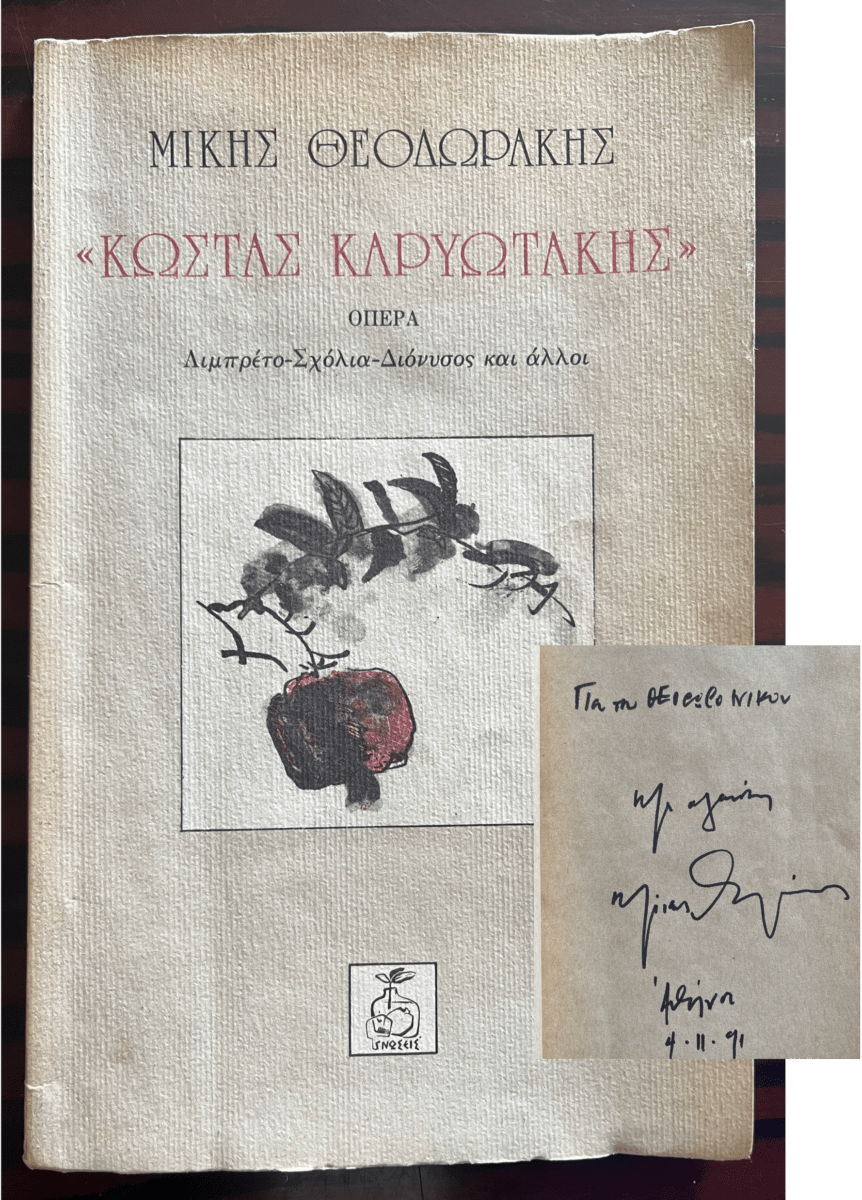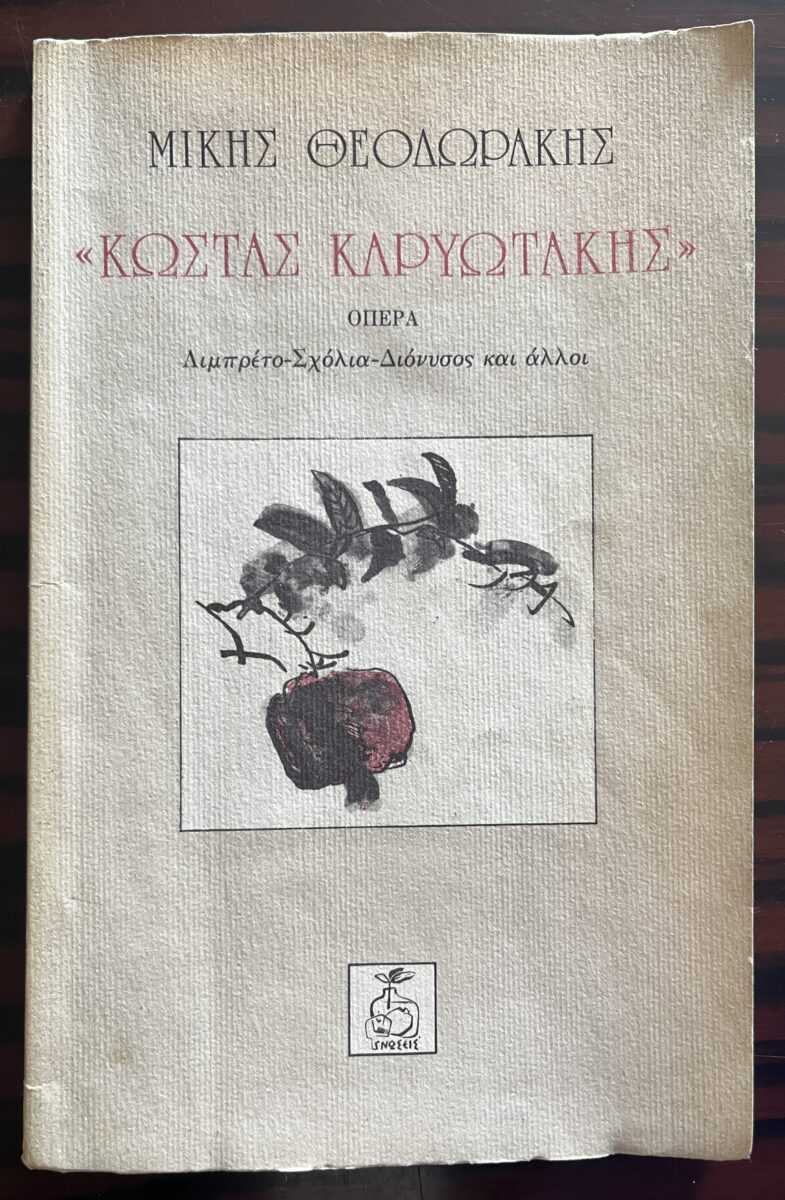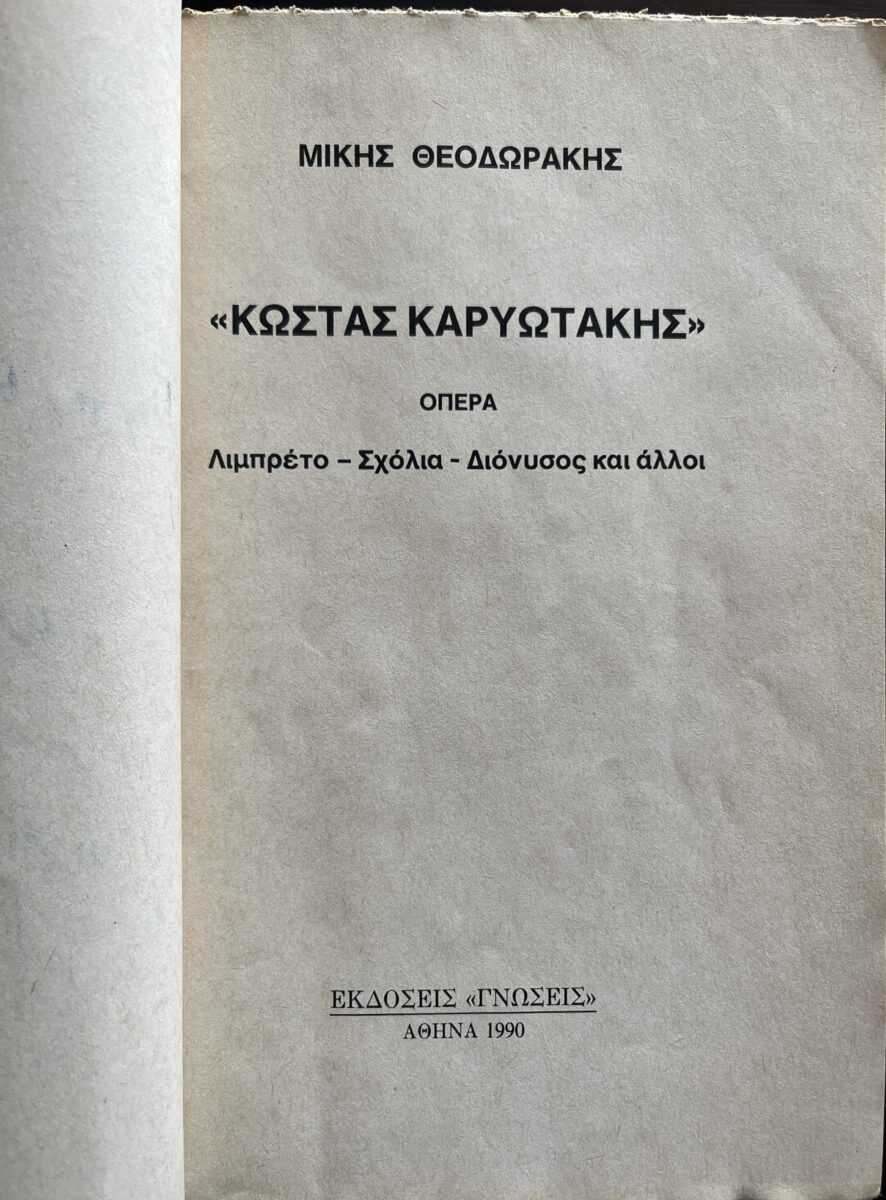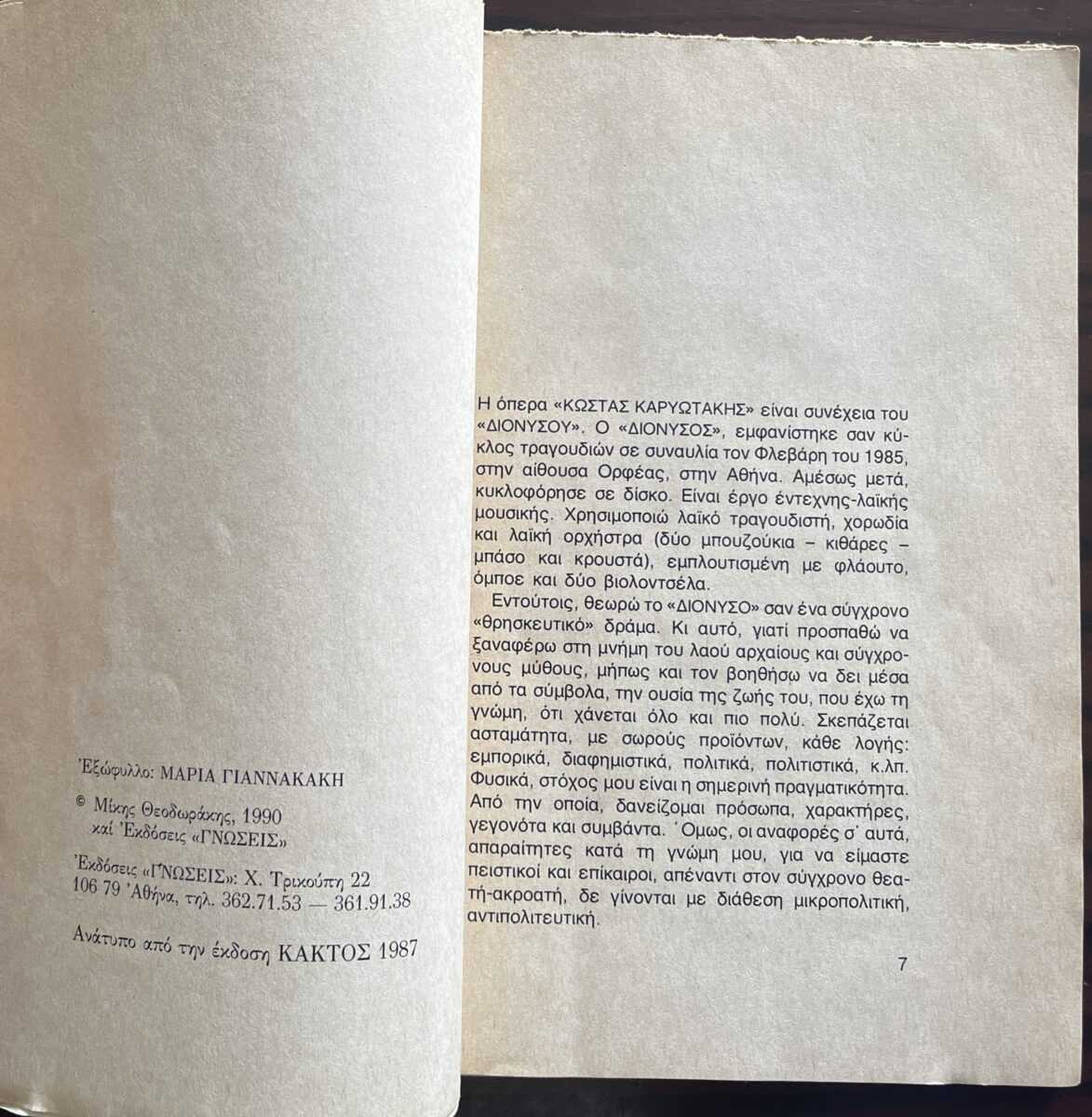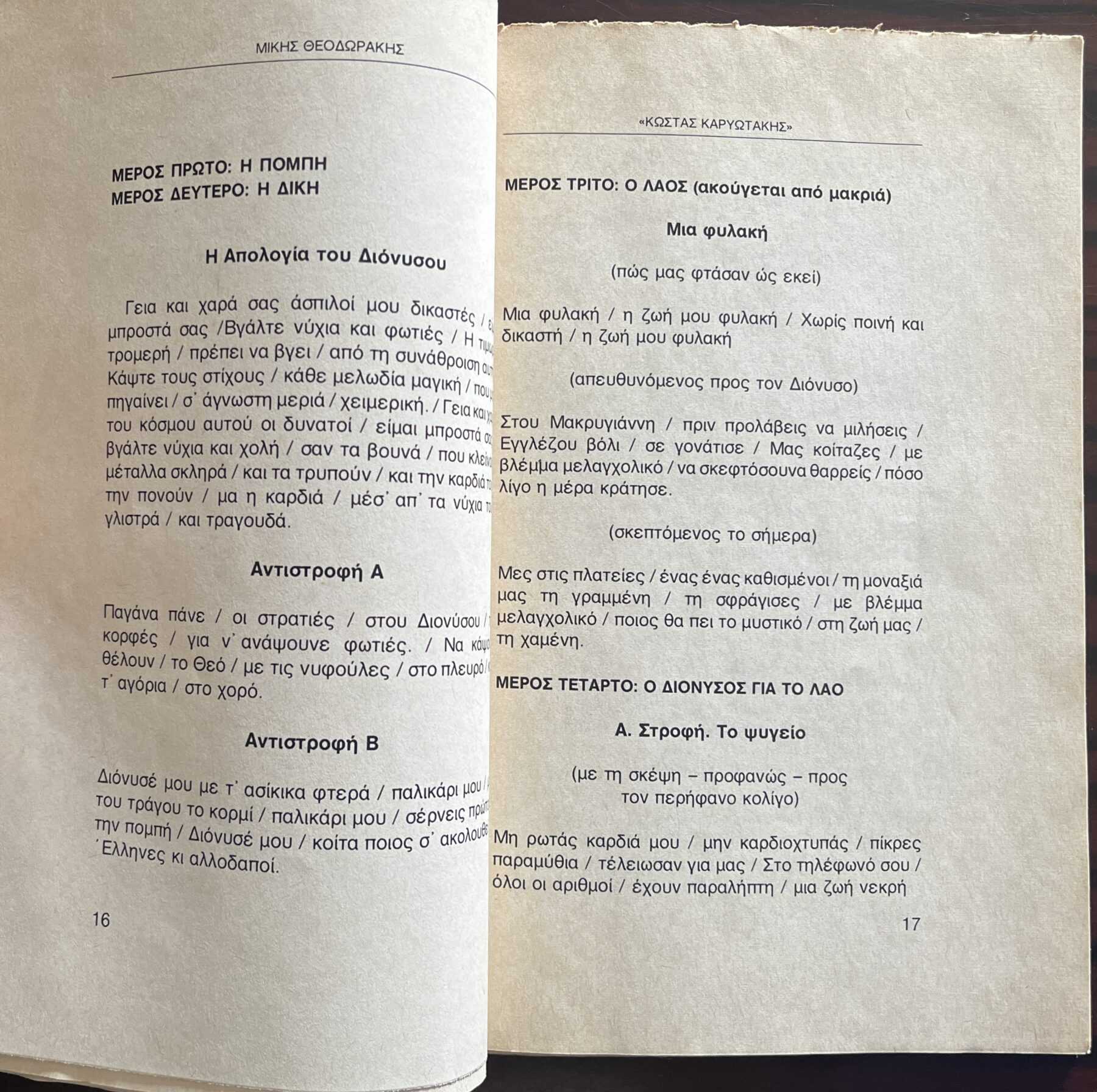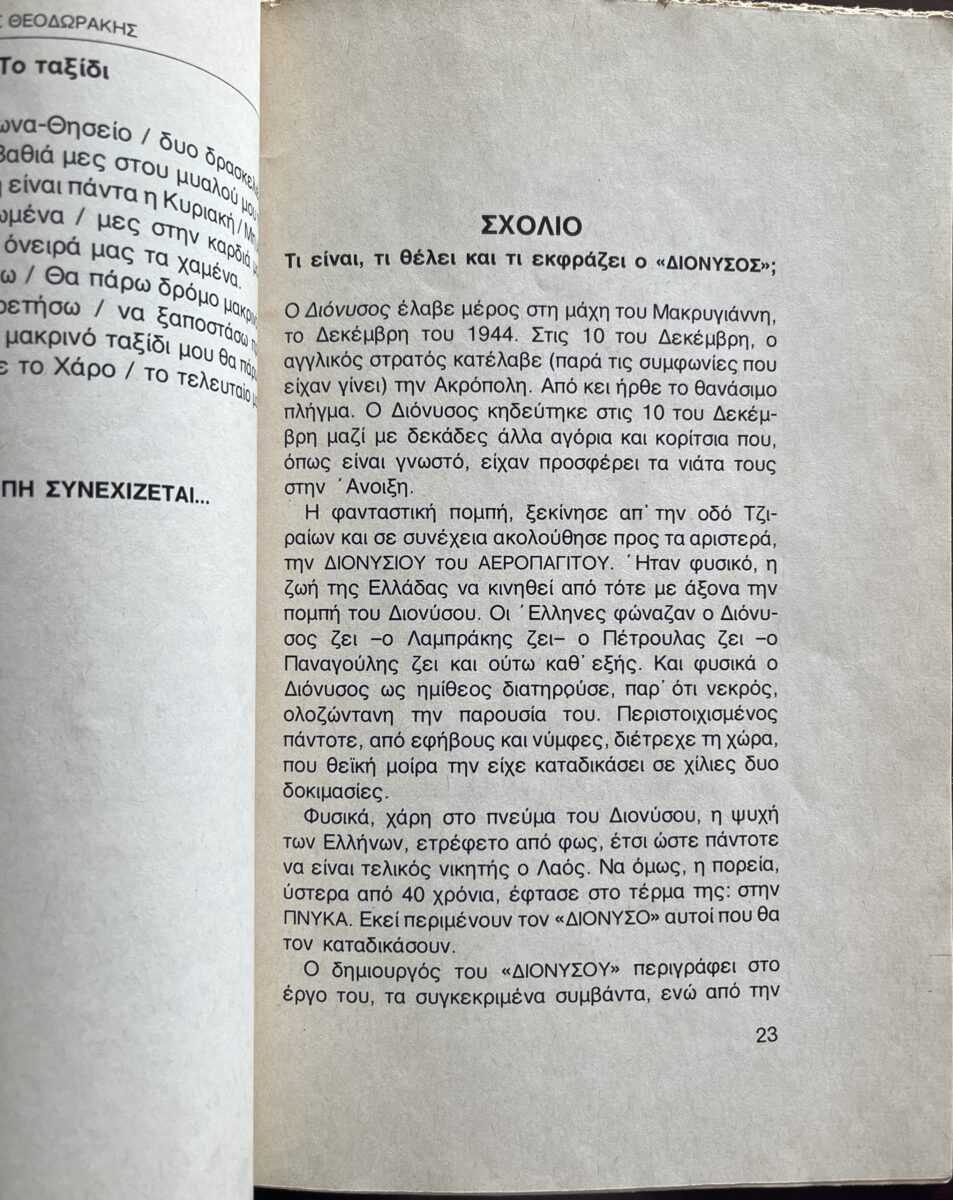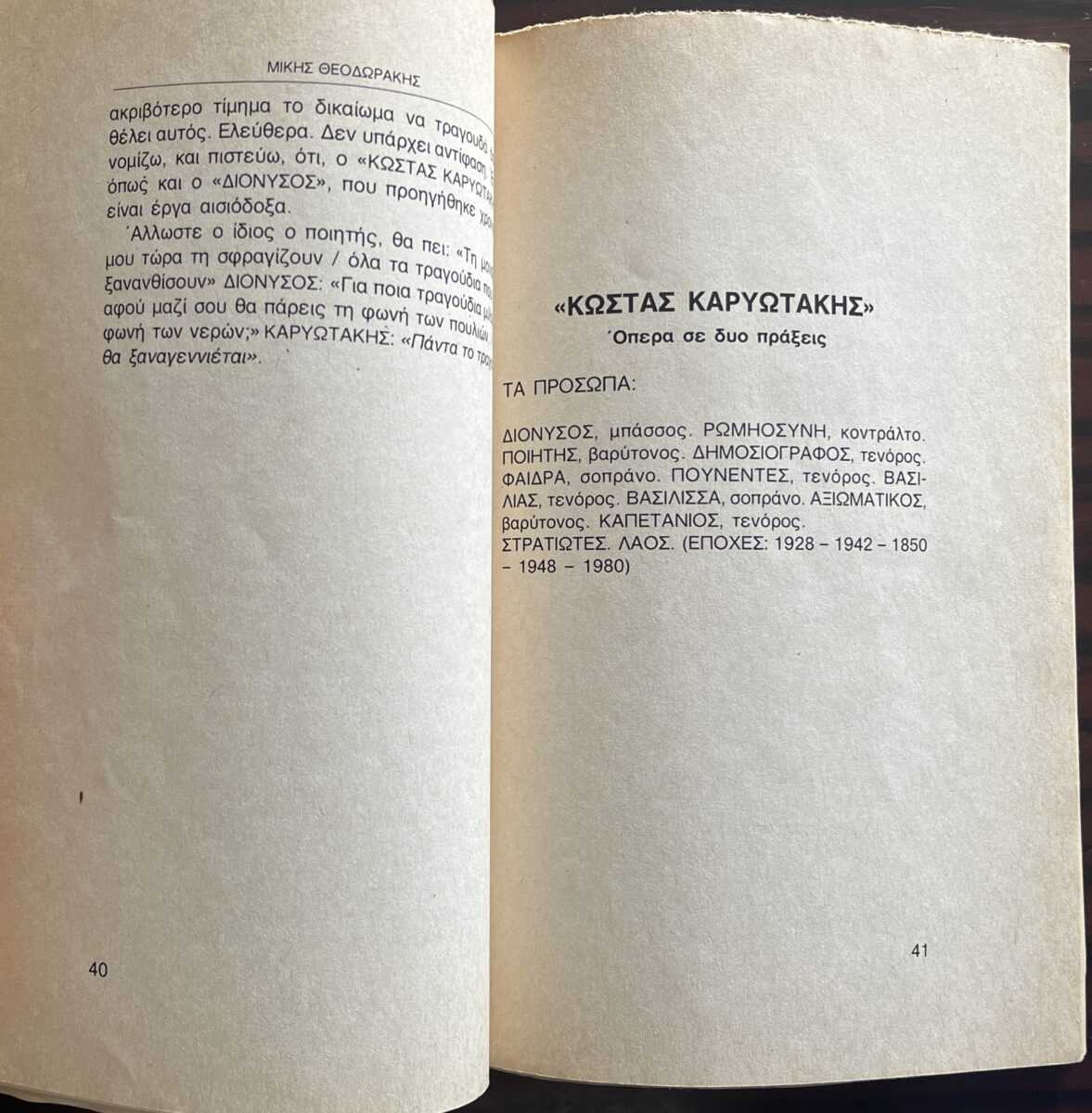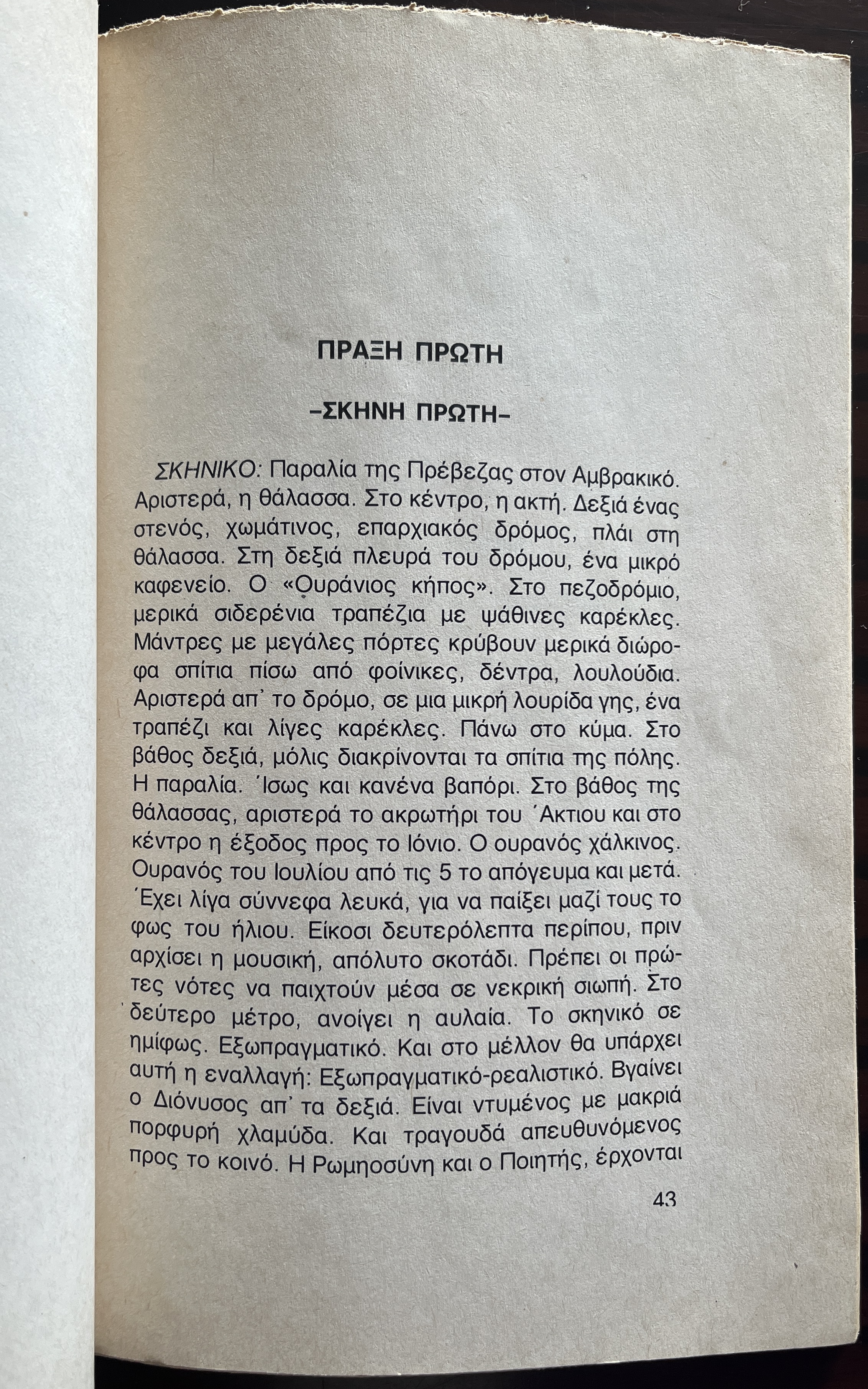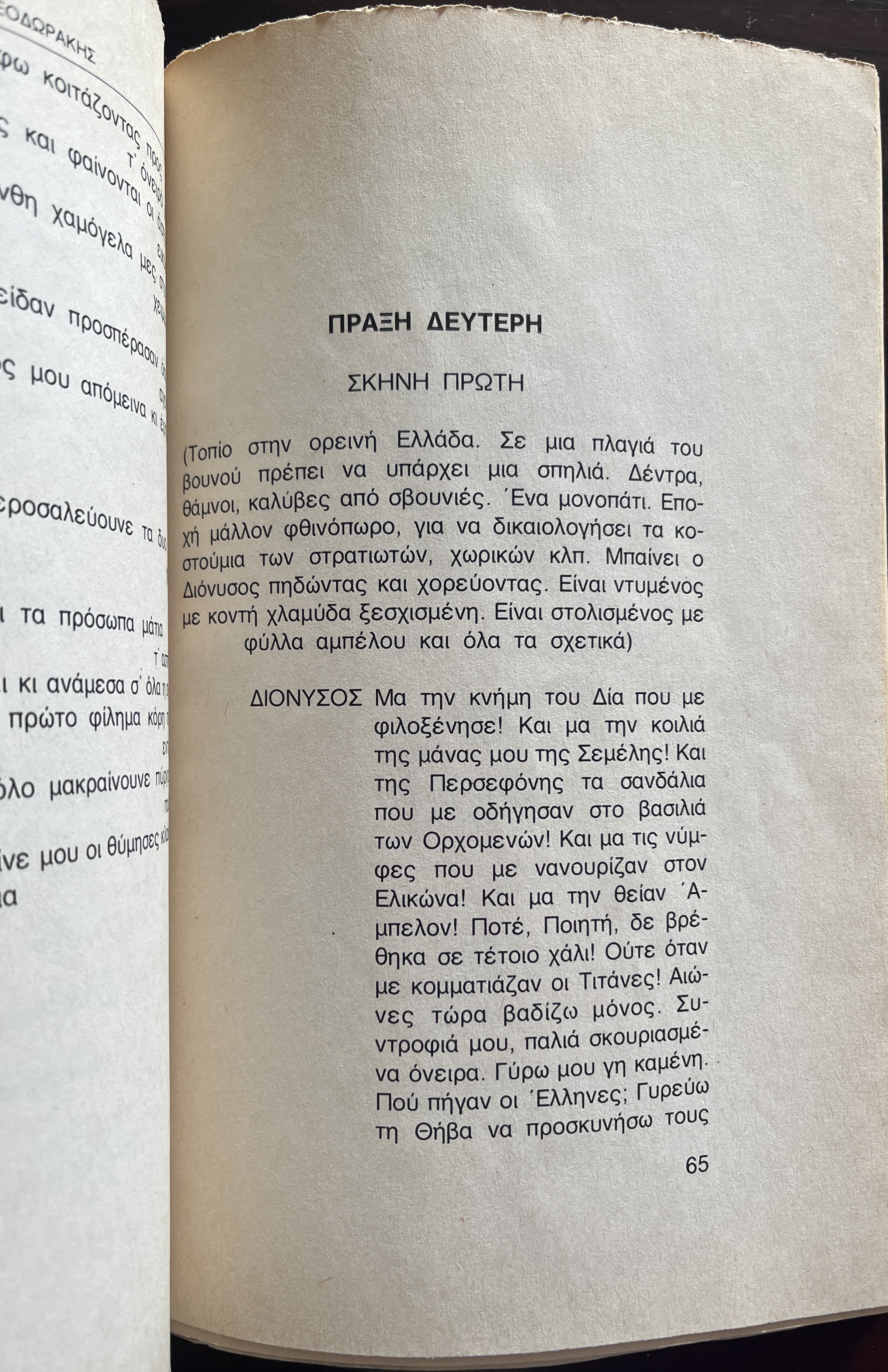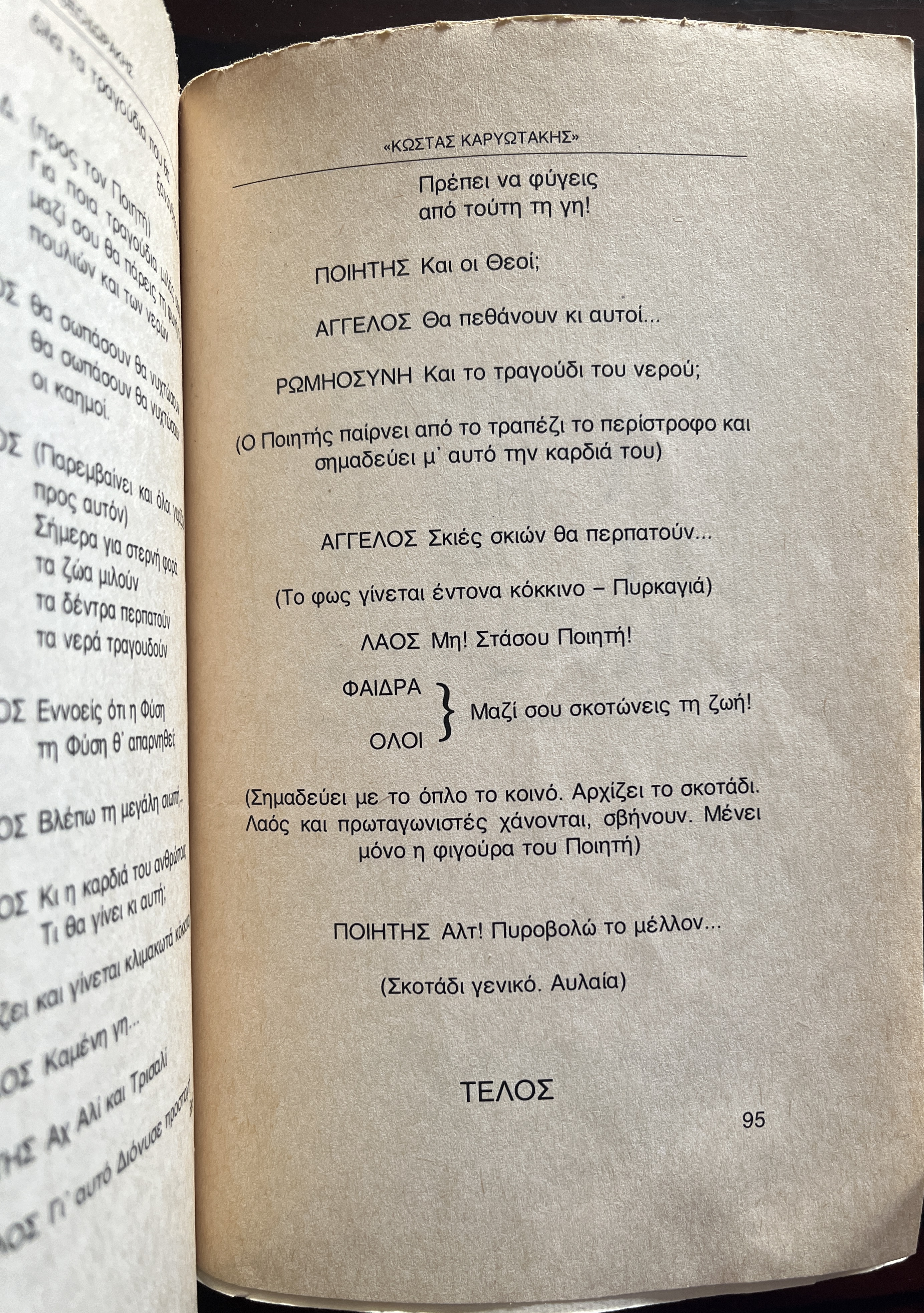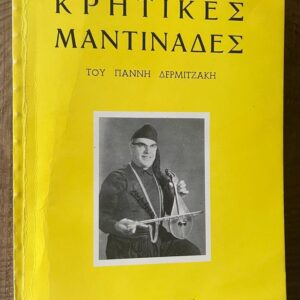SIGNED, 1990, Mikis Theodorakis, Greek Opera Libretto, Kostas Karyotakis, Greece
95.00€
Description
Μίκης Θεοδωράκης
ΚΩΣΤΑΣ ΚΑΡΥΩΤΑΚΗΣ
ΟΠΕΡΑ
Mikis Theodorakis
KOSTAS KARYOTAKIS
OPERA
Published by Gnoseis in Athens in 1990
Signed and Inscribed by Mikis Theodorakis
Cover made by Greek artist Maria Yiannakaki
Original Paper Binding
95 Pages
21.5 cm x 13.5 cm
Michail “Mikis” Theodorakis (1925 – 2021) was a Greek composer and lyricist credited with over 1,000 works. He scored for the films Zorba the Greek (1964), Z (1969), and Serpico (1973). He was a three-time BAFTA nominee, winning for Z. For the score in Serpico, he earned Grammy nominations. Furthermore, for the score to Zorba the Greek, with its song “Zorba’s Dance”, he was nominated for a Golden Globe. Up until his death, he was viewed as Greece’s best-known living composer. He was awarded the Lenin Peace Prize.
Τhe opera “Kostas Karyotakis”, subtitled “The Metamorphoses of Dionysus”, is Mikis Theodorakis’ first lyrical work, composed between 1984 and 1986. The libretto, written by the composer himself, incorporates poems by Kostas Karyotakis and Kostas Varnalis. The premiere of the opera took place on 14 February 1987 at the National Opera House in Athens. The work is described as an “opera buffa” and is based on the life and death of the poet Kostas Karyotakis. The opera was recorded live during a performance at the Herodion, at a protest event by the employees of the National Opera House, and was released on disc in 1992 by Sirios.
Kostas Karyotakis (1896 – 1928) is considered one of the most representative Greek poets of the 1920s and one of the first poets to usechallenging themes in Greece. His poetry carries a lot of nature, imagery and traces of expressionism and surrealism. He also belonged to the Greek Lost Generation movement. The majority of Karyotakis’s contemporaries viewed him in a bad light throughout his life, with no realistic accountability for their contemptuous views; for after his suicide, the majority began to return to the view that he was indeed a great poet. He had a considerable, almost disproportionately progressive influence on later Greek poets.
Additional information
| Languages | Greek |
|---|

